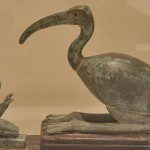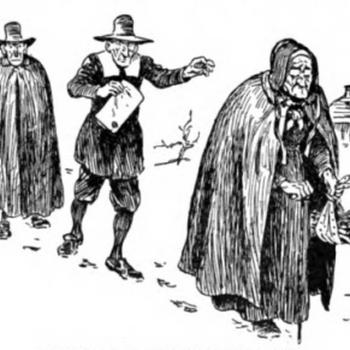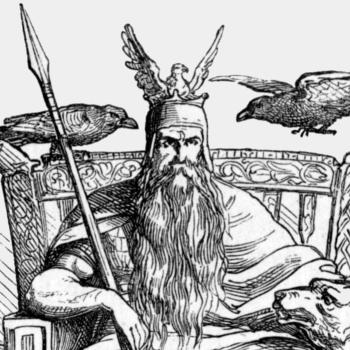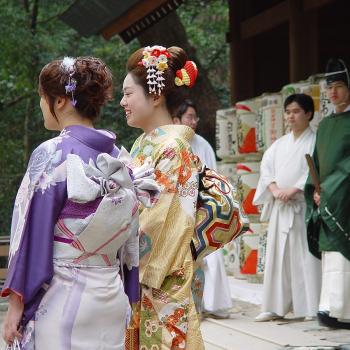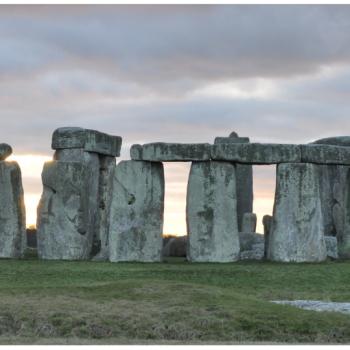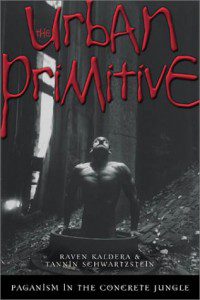 Raven Kaldera and Tannin Schwartzein, The Urban Primitive: Paganism in the Concrete Jungle
Raven Kaldera and Tannin Schwartzein, The Urban Primitive: Paganism in the Concrete Jungle
(Llewellyn Publications,U.S., 2002)
Don’t let the “noughties teen grunge” cover, colloquial writing style and weird cartoons throughout the text put you off – this is good read! The Urban Primitive: Paganism in the Concrete Jungle is one of the few books written for what’s probably the largest demographic in Western Paganism: young city dwellers. I have spent my entire life living in cities so I really appreciated that a book had been written that does not merely demonstrate that Paganism is more than possible for urbanites, but argues that the city itself, far from being the “sterile” environment that we often consider it to be in comparison to the natural world, is alive with its own energy and spirits. As the book’s introduction puts it, “This book is written for all of you, for everyone who loves the city they live in and doesn’t want to feel guilty about it…and those of you who are just trying to cope.”
I wrote a while ago about how Paganism could be considered a “punk religion.” The Urban Primitive exemplifies this to the core. It takes a rebellious, rough-and-ready, utilitarian approach to ritual and magic, suggesting budget substitutes for the usual tools and ingredients used in spellwork and offerings (it even makes a good environmental case for why these substitutes are an improvement over the “real thing,” citing the scarcity of the plants that make genuine essential oils for example). The book is literally rather punky, describing the magical applications of body piercings, tattoos and leather at length. Writers Kaldera and Schwartzein are highly imaginative and creative, coming up with very original ideas for rituals and unique perspectives on spirits (car dragons, anyone?). Some of their ideas are wonderfully bizarre; much of their theology is based more on their own modern interpretation of deities and spirits rather than historical accounts, and I imagine that for some these interpretations will be a little too weird and even “fluffy.” But others out there will probably love them.
Aside from making me re-think my attitude to the city and giving me plenty of ideas for my own rituals, what I like most about The Urban Primitive is that it brings back the folk quality to Paganism. The idea that Neo paganismis a religion that has developed among normal, everyday people (rather than one prescribed by a higher authority) is one I find very important and The Urban Primitive, with its emphasis on practical, individual and low-cost approaches and magic for everyday, worldly well-being, puts Paganism right in the heart of the urban folk.

